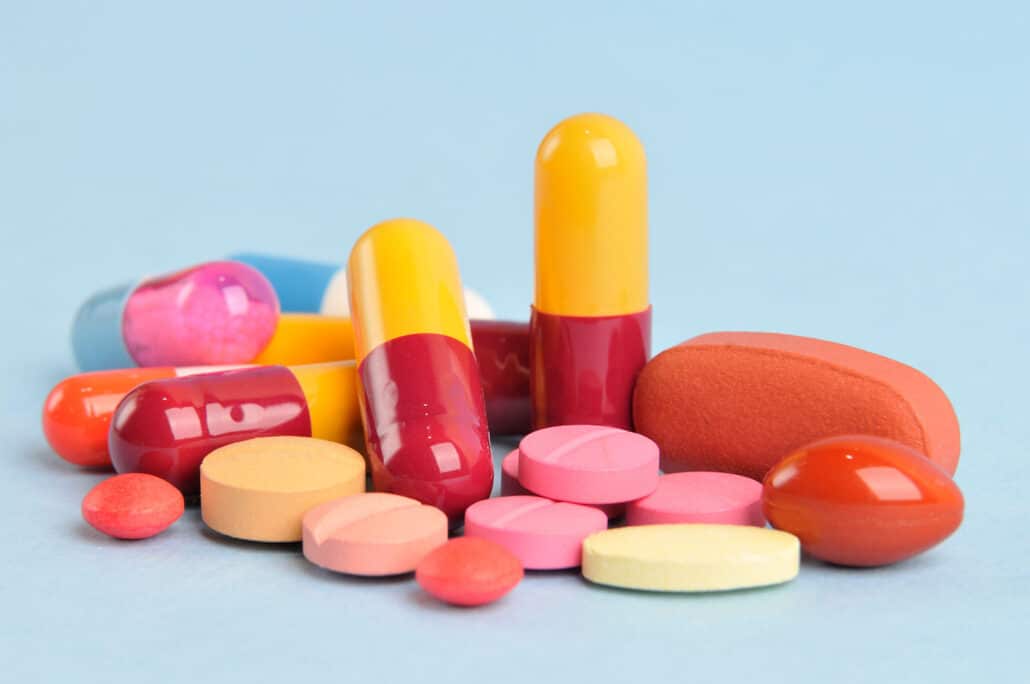Is your doctor prescribing stimulants rather than sedatives for a calming effect? This can be a little confusing, as you’d think that stimulants will only lead to more hyperactivity.
So, you might find yourself wondering, why do stimulants calm me down?
Stimulants are perfect for calming down people who have ADHD! If you have ADHD or other attention-deficit disorders, stimulants are the first-line treatment. They increase your ability to concentrate and might help you stay calm.

Keep on reading to find out exactly how stimulants work and how they affect ADHD brains!
Table of Contents
Why Do Stimulants Calm Me Down?
Stimulants can help calm individuals with ADHD by improving the function of specific brain regions involved in focus and self-regulation. While stimulants generally increase activity in the central nervous system, their effect on people with ADHD is not paradoxical but rather context-dependent.
In ADHD, key areas of the brain—particularly the prefrontal cortex—tend to be underactive. Stimulants increase the levels of neurotransmitters like dopamine and norepinephrine, which enhances communication between neurons. This improved activity in the prefrontal cortex helps regulate attention, control impulses, and manage emotions, leading to a sense of calm and focus.
What Is ADHD?
Attention-Deficit/Hyperactivity Disorder (ADHD) is a neurodevelopmental condition that results in impulsivity, short attention span, and difficulty regulating emotions. The most common drugs that help regulate ADHD are stimulants.
Before understanding how stimulants can calm you down, you should know how your brain works.
Neurons (brain cells) communicate with each other in an incredibly complex way. The neurons aren’t connected to each other. Instead, there’s a junction between them called the synapse.
For the nervous system to properly function, each neuron releases chemicals into the synapse, interacting with the following neurons. These chemicals are called neurotransmitters.
While scientists have yet to discover the exact cause of ADHD, the two main chemicals that affect people with ADHD are norepinephrine and dopamine.
You may know these two neurotransmitters are associated with the brain’s reward system and the fight-or-flight response. In individuals with ADHD, the brain may not produce enough dopamine or norepinephrine, or it may process these neurotransmitters less efficiently.
In other words, the neurons of people with ADHD are constantly under-stimulated, which is why they respond well to stimulants!
Stimulants and ADHD
Now that you know why stimulants calm you down, you might want to learn how they do so!

There are two main types of stimulant drugs used in managing ADHD: methylphenidate and amphetamine. They help improve your attention span and reduce any behavioral problems associated with ADHD. Each one might affect you differently, depending on the severity of your ADHD.
Here’s how each of them works:
Methylphenidate
Methylphenidate is a central nervous system (CNS) stimulant that works by blocking the reuptake of dopamine and norepinephrine, increasing their availability in the synaptic cleft. These chemicals are neurotransmitters, not hormones.
In simple terms, this stimulant blocks nerve cells from reabsorbing the neurotransmitters dopamine and norepinephrine after they are released. This allows these chemicals to remain in the synaptic cleft for a longer period, enhancing their ability to stimulate underactive neurons in the brain.
Typically, methylphenidate is available under the trade names Ritalin and Concerta. The chemical is milder than amphetamine, so it’s the first-line choice for ADHD in children.
Some side effects of taking methylphenidate include:
- Anxiety
- Insomnia
- Increased blood pressure
- Sweating
- Tingling
- Frequent tics
Amphetamine
Amphetamine enhances the release of dopamine and norepinephrine into the synapse and blocks their reuptake, increasing their availability and duration of action at the nerve synapse.
Amphetamine increases the release of dopamine and norepinephrine and prevents their reuptake into the neurons, thereby prolonging their activity. This makes it a more potent drug, requiring careful use under medical supervision.
Since amphetamine is highly efficient and fast-acting, Adderall, which contains amphetamine, is one of the most popular stimulants for ADHD on the market.
It does come with some side effects, though, including:
- Nausea
- Vomiting
- Sweating
- Blurred Vision
- Hallucinations
What You Should Know Before Taking Stimulants
Even though stimulants are excellent for controlling ADHD, you must only use them under your doctor’s supervision. Additionally, a combination of both medication and therapy is the best option for treating ADHD.

Before taking stimulants, it’s important to realize that they can have severe side effects. For example, Adderall might cause minor growth suppression in children.
In some extreme cases, stimulants might significantly impact your health.
Dependence
Stimulant dependence is a pretty common problem. After all, these ADHD medications enhance dopamine levels, causing euphoria and addiction.
In addition, taking stimulants for a long time might lead to tolerance. The brain adapts to the increased levels of neurotransmitters, such as dopamine and norepinephrine. As a result, higher doses may be needed over time to achieve the same therapeutic effect, though this should only be done under medical supervision.
This vicious cycle results in many people misusing and depending on stimulants. Some people can even go as far as taking stimulants just to study and improve their concentration.
That’s why it’s crucial to monitor how the stimulants affect you. You should also report any change in symptoms you might experience while on ADHD drugs to your doctor.
Serotonin Syndrome
Stimulants, particularly Adderall, might result in serotonin syndrome. The reason is that amphetamines don’t just reduce the metabolism and degradation of dopamine, but they also impact other chemicals, such as serotonin.
You might think serotonin is just another happiness hormone. Yet, this chemical plays an important role in regulating muscles, blood pressure, and memory.
Serotonin syndrome can happen if you overdose on Adderall or take other antidepressants. You should consult your doctor immediately if you suspect an overdose.
Symptoms of serotonin syndrome are:
- Nausea and vomiting
- Tremors and twitching of muscles
- Loss of coordination
- Anxiety
- Confusion
- Irregular heartbeat
Sudden Cardiac Arrest
Generally, stimulants are safe if prescribed by a doctor. Still, studies show that children taking Adderall should be carefully monitored for any cardiac event.
That’s only natural, as Adderall can affect systems beyond dopamine and norepinephrine. For example, an increase in norepinephrine levels can lead to higher heart rate and blood pressure.
So, doctors usually modify the dose of Adderall in children and avoid using the extended-release formulation.

Conclusion
Why do stimulants calm me down?
Stimulants can be effective for calming individuals with ADHD because they target the underlying neurological differences associated with the condition. The ADHD brain often exhibits reduced activity in the prefrontal cortex, which plays a critical role in attention, impulse control, and emotional regulation. This underactivity contributes to the symptoms of hyperactivity, inattention, and impulsivity.
Stimulants like methylphenidate (Ritalin) and amphetamines (Adderall) work by increasing the availability of dopamine and norepinephrine, two key neurotransmitters involved in focus and self-control. By enhancing activity in the prefrontal cortex, these medications help balance brain function, improving concentration and reducing feelings of restlessness.
As with all medications, stimulants can have side effects. These may include insomnia, loss of appetite, increased heart rate, and, in some cases, more severe risks like dependence, cardiovascular complications, or rare conditions like serotonin syndrome. For this reason, stimulants should always be taken under the guidance of a qualified healthcare professional.
Published on: 2023-03-06
Updated on: 2025-06-05

